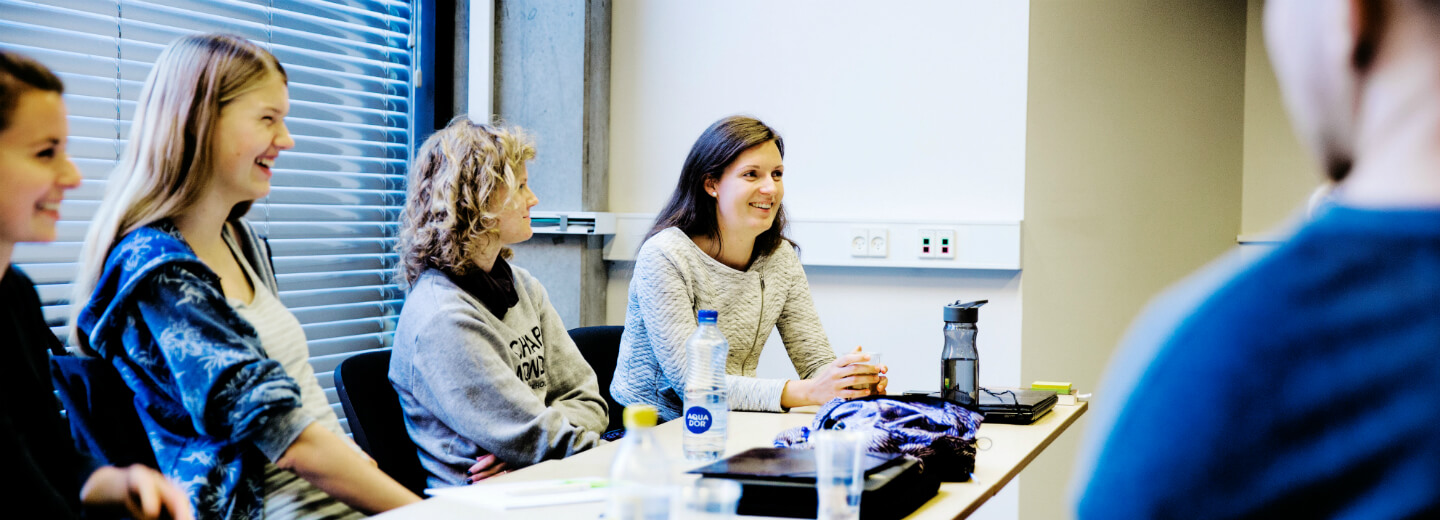
New principles for teaching related tasks
Following a review in the autumn of 2016, the new principles for teaching related tasks have now been approved by the Faculty's Management Group. The principles replace the earlier specification of teaching activities, which has been in place at the Faculty for the last five years, by which all VIP's contact hours were calculated.
According to Dean Martin Zachariasen, there are two main reasons why the specification has had to be changed:
"The background for the new principles is that from and including 2017 we have a more incentive-driven budget model at the Faculty, which to a larger extent than before rewards the departments for their efforts in the area of education. For this reason, I want to bring the responsibility for allocating staff hours back to the departments. It will give more decision-making power to the departments, as they can in future determine for themselves how resources are to be distributed in the best way. There was also general dissatisfaction with the previous specification, as it was perceived as being too rigid. Therefore, we in the Management Group decided that it was time to change the specification method."
The new principles contain a target for VIPs to spend an average of 50% of their work hours (i.e. 18.5 hours per week or 840 hours per year for full-time employees) on teaching related tasks, including study administration, administration of own courses, study leadership and membership of Education Committee/Academic Study Board etc. By extension, this provides scope for VIPs to have teaching related tasks within a range of 20-80% of their total work time (regardless of how their salary is financed). A VIP should therefore spend at least 20% of their time on research and at least 20% of their time on teaching. According to the Dean, however, a distribution of 50/50 should always be the target at the departments:
"Although the new principles pave the way for VIPs to teach within a scope of 20-80% of their total work time by agreement with the Head of Department, I think that the ideal distribution is 50% for teaching and 50% for research. If the Head of Department feels that in special circumstances a VIP needs to come to an agreement about more or fewer teaching hours, then that can be taken into consideration. But only for a period of a maximum of two years at a time," states Martin Zachariasen.
Furthermore, the new principles make it clear that the departments will set their own norms and decisions about teaching related tasks, which is new in comparison with the previous specification. Chairman of the Study Board, Poul Nielsen, approves of the new principles but expresses concern over how the departments will implement them:
"I find it positive that alternative career paths are being opened up at NAT, and that if a VIP wishes to focus on teaching development, for example, it can be permitted for a limited amount of time. However, it is important that support is also provided, as the individual could then find it difficult to find external funding for his/her research. As Chairman of the Study Board, I also think that it is important for the departments to have a degree of homogeneity in their specification of teaching related tasks, as it could hamper our interdisciplinary collaborations at the Faculty. So, I welcome the new principles, but I'm also interested to see how their implementation will turn out in practice."
Head of the Department pf Physics, Chemistry and Pharmacy (FKF) Frants Roager Lauritsen is pleased about the new principles:
"It is a great advantage for us to have the opportunity to specify the actual teaching related tasks - and not just contact hours as before. It will reflect to a much greater extent the diversity of tasks involved in the study programmes at NAT and will also highlight the important work our teachers do every day, both inside and outside of the classroom. I look forward to implementing the principles at FKF, but I am aware that it will be a challenge to prepare an overarching model without too many details."
The principles were approved on 10 January 2017.